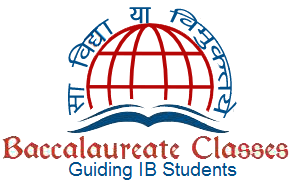OUR BLOG
How can I ace my Economics IGCSE (O'level) exam?
Preparing for the paper
While preparing for the paper, it is compulsory that you do past papers. It is the simplest and easiest way to prepare. It’s simply the name of the game. The highly accomplished teachers at Baccalaurete classes specialize in economics and guide you the way exactly what is expected of you and when you write the paper, and they are often the best place to find out what terms must be used to score full marks.
Make your own notes. If you have the time, write down handwritten notes — in terms that you understand directly, but also note down the terms you must use when you write the paper. This is extremely useful, and I would suggest using your notes as a template to guide others as well. Teaching others is a quite useful learning method because it helps you to analyze your knowledge — even the parts that are not necessarily tested.
Use recall. Try to recall an important concept, or points before sleeping. Consult your notes/text book only if you must. Recall gets you to actively use your memory (as opposed to the passive activation of reading from your notes/texbook) and this strengthens the ideas in your brain very effectively.
Get a friend to test yourself with. Get a friend and tell each other what you studied and give a summary of it (in your own words) every day. This also makes you more responsible, and helps you check for gaps in your knowledge [I would have messed up Biology if it wasn’t for her!].
Get exercise. A lot of my friends (and a lot of people in India) prefer to shut themselves up in their rooms during the exams and study fervently. While that certainly gets you [debatably] good results — you should always get exercise. Off the top of my mind, it helps you relax, helps your diffused mode kick in (better understanding), and if you’re playing a sport you enjoy, then you’re going to feel better, and happier! ← Is there anything more important during exams than being able to handle stress well?
Organize your time for you
If you organize your time in 25 minute blocks (with 5 minute breaks → 15 minute break after every 3rd block) [The Pomodoro technique], you will be able to maximize the amount of attention you pay to your studying. Teddy Roosevelt studied for 3–4 hours a day during when at college — spending the rest of his time in nature, but he studied with such focus that he still did well. Do yourself a favour, and maximize total quality, not total quantity.
Organize your time by the week. So decide what you’re going to revise every day of the week, along with a certain number of past papers. I did 4–5 papers along with 5 pomodoro revision sessions each day:

